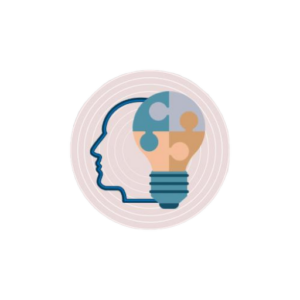Cognitive functions are a big part of the MBTI world. Extroverted thinking (Te) is one of the eight functions of various personality types.
Here, we’ll talk about the Te function and what you can expect from them.
What is Extroverted Thinking?
Extroverted thinking, also known as Te, is one of the judging functions. This means that it helps people make decisions and judge situations.
Te is logic focused on the external world. In other words, those who use Te are interested in arranging facts or things in the external world. Te is also associated with thinking out loud.
Te-doms are interested in verifiable data and information. They might find joy in arranging this data into maps, graphs, and surveys.
Their need for arrangement extends to even people. Te-doms find it easier to arrange people into groups for efficiency.
The role of Te is determined primarily by its position on the user’s function stack. For Te-doms, this function helps them to arrange and logically interpret data. The function that follows influences what happens next.
For example, ESTJ’s primary function is Te. Si backs this up. So, once Te has done its job of arranging and verifying data, Si steps in. This allows ESTJ to consider what has worked in the past.
By doing so, they can decide whether it’s time for a change. Most likely, they’ll stick to what has worked.
ENTJ also uses Te as their primary function. Ni backs this up. Thus, ENTJs use Te to verify and arrange information from their environment. Ni allows them to piece together the dots. Then they find to make things better.
So, while ENTJ and ESTJ are some of the best leaders and both use Te, their approach is very different.
Signs That You Use the Te Function
1. You’re Great with Organization and Scheduling
Te-doms find organizing and scheduling things important. This is their way of ensuring they make logical or sound decisions.
Te users also rely heavily on this. However, as the position of Te slides, it becomes less important.
With organization comes the need to make plans. Thus, you’ll look forward to punctuality and sticking to a plan. You might also dislike working with those who do not follow this route.
2. Self-Disciplined
This follows the last point. Because Te-doms operate with a level of organization, it’s only natural they also remain self-disciplined.
Procrastination is not something they especially like. They are big fans of performing tasks at the right time.
Because of this trait, te-doms are usually impatient with types inclined to procrastinate.
3. You’re All About the Facts
Te-doms are all about facts. They want to measure and objectively scrutinize all information to ensure it makes sense.
Because they work with facts, te-doms are logical. They want to make sure the logic makes sense and can be measured.
Understanding why a fact is true is important if you’re a te-dom.
4. You’re Confident
Te comes with many filters and remains neutral (except when followed with Fi). Because of how objective te users are, they strongly believe in their truth.
Thus, they appear confident and speak clearly or precisely. Their confidence has a different aura from Ne-dom’s confidence. It’s much more intimidating and has a finality about it.
5. Structure and Rules Appeal to Me
Te-doms value structure in their lives. They want a steady routine or solid organization at work or at home. This comes down to how they plan their day or who they work for.
Because of how structured their lives can be, they usually have ground rules they want others to stick to.
If they are leaders, they might set ground rules for their staff to follow. This is heightened in ESTJs.
6. Objective Logic
As earlier stated, te users are obsessed with objective logic. This is logic that can be measured and is verifiable. This is in contrast with ti-doms which are more interested in subjective logic.
Thus, Te-doms are more interested in knowing the truth and not how it affects them.
7. You’re a Sucker for Efficiency
Their self-discipline, love for structure, and confidence all lead to one thing; efficiency. Te users are efficient at what they do. Te-doms, in particular, are hard workers who stick to their values.
You might also see similar levels of dedication among auxiliary Te users.
Which MBTI Types Use Te?
| Cognitive Stack | MBTI Type |
| Primary | ENTJ and ESTJ |
| Auxiliary | INTJ and ISTJ |
| Tertiary | ENFP and ESFP |
| Inferior | ISFP and INFP |
As you can see above, eight MBTI types use the Te function. However, its position on the function stack determines how much each type relies on it.
Commonly Asked Questions About the Extroverted Thinking (Te) Function
Do ENTPs use Te?
No, ENTPs do not use Te as a core function. While there’s the shadow function argument, the ENTP 4 main cognitive functions are Ne, Ti, Fe, and Si in that order.
Is Te Better than Ti?
No, Te is not better than Ti. They look at logic from different perspectives. Ti can be more effective in some situations and vice versa.
How Do Te Users Think?
Te users are more interested in the truth. Thus, they think logically by testing the data gathered with previously verified data.
Can INTPs use Te?
No, INTP’s four major cognitive functions are Ti, Ne, Si, and Fe in that order. While this is true, their enneagram type might make their functions mimic the extroverted thinking function.
For example, INTJ 8w7s might seem to use Te.
Can an INFJ Use Te?
No, INFJ uses Ni, Fe, Ti, and Se. Like the INTPs, this can be influenced by their enneagram type.
































